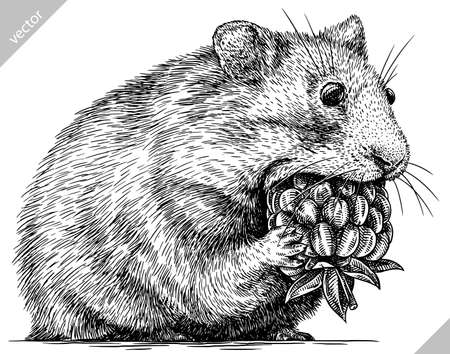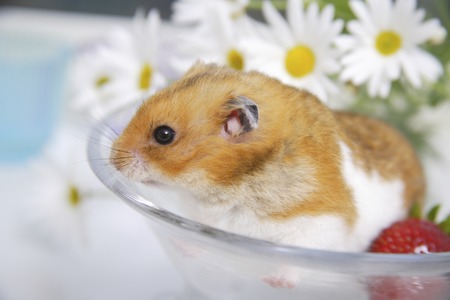Overview of Pet Legislation in Great Britain
The legal landscape surrounding pet ownership in Great Britain is shaped by several key animal welfare laws and government bodies, all dedicated to ensuring the health and wellbeing of animals, including small pets like hamsters. Central to this framework is the Animal Welfare Act 2006, which sets out the duty of care that all pet owners must provide for their animals’ basic needs—such as proper diet, suitable living environments, and protection from pain, suffering, injury, or disease. Enforcement of these regulations falls primarily under the remit of local authorities and the Animal and Plant Health Agency (APHA), with support from organisations like the Royal Society for the Prevention of Cruelty to Animals (RSPCA). While much of the legislation applies broadly to all domestic animals, there are specific guidelines and codes of practice that address the unique needs of small pets such as hamsters. These codes detail requirements for housing, enrichment, handling, and veterinary care to promote both physical and psychological wellbeing. Collectively, this legal framework demonstrates a commitment within Great Britain to high standards of animal welfare and responsible pet ownership.
Legal Requirements for Keeping Hamsters in the UK
When it comes to hamster ownership, the United Kingdom has specific laws and regulations aimed at ensuring the health and welfare of these small pets. These requirements are shaped by overarching national legislation, but there are some notable differences between England, Scotland, and Wales that every responsible owner should be aware of.
Licensing and Registration
In general, private individuals in the UK do not require a licence to keep hamsters as pets. However, businesses involved in breeding or selling hamsters must be licensed under The Animal Welfare (Licensing of Activities Involving Animals) (England) Regulations 2018, and their Scottish and Welsh equivalents. Local authorities oversee these licences and regularly inspect premises for compliance.
Summary of Licensing Laws by Region
| Region | Private Ownership | Commercial Breeding/Sale | Registration Required? |
|---|---|---|---|
| England | No licence needed | Licence required from local authority | No registration for pet owners |
| Scotland | No licence needed | Licence required from local council under The Animal Welfare (Licensing of Activities Involving Animals) (Scotland) Regulations 2021 | No registration for pet owners |
| Wales | No licence needed | Licence required; governed by The Animal Welfare (Licensing of Activities Involving Animals) (Wales) Regulations 2021 | No registration for pet owners |
Housing Standards Mandated by Law
The Animal Welfare Act 2006 applies across England and Wales, with similar provisions in the Animal Health and Welfare (Scotland) Act 2006. These Acts set out a duty of care requiring owners to meet their hamster’s five welfare needs: suitable environment, suitable diet, ability to exhibit normal behaviour patterns, housing with or apart from other animals as appropriate, and protection from pain, injury, suffering and disease.
Main Housing Requirements:
- Cage Size: While there is no minimum legal cage size specified in national law, the RSPCA recommends at least 80cm x 50cm floor space for hamsters. Commercial breeders must follow stricter standards as outlined in their licensing conditions.
- Bedding & Enrichment: Owners are expected to provide appropriate bedding material and opportunities for enrichment such as tunnels and exercise wheels.
- Cohabitation Rules: Dwarf hamsters may be kept together if compatible; Syrian hamsters must always be housed alone due to their solitary nature.
- Cleanliness & Maintenance: Regular cleaning and maintenance of enclosures is necessary to prevent illness or distress.
The main variations between England, Scotland, and Wales relate to how animal activities are licensed rather than to the basic welfare standards themselves. However, all regions enforce a high standard of care that supports both the physical health and psychological wellbeing of hamsters. Non-compliance can result in prosecution or disqualification from keeping animals under UK law.

3. Animal Welfare Act 2006 and Its Implications
The Animal Welfare Act 2006 stands as a cornerstone in Great Britain’s approach to pet welfare, including the care of small animals such as hamsters. This legislation sets out clear legal duties for all pet owners, making it an offence to cause unnecessary suffering or to fail in providing for the needs of animals under their care. For hamster owners, understanding and complying with this Act is essential not only to remain within the law but also to ensure that their pets live healthy, fulfilling lives.
The Five Welfare Needs: A Legal Framework
The Act defines five key welfare needs that must be met by all responsible pet owners. These are:
1. The Need for a Suitable Environment
Hamsters require a safe and appropriate living space. The law expects owners to provide adequate bedding, appropriate cage sizes, and opportunities for exercise and enrichment. Overcrowded or poorly ventilated habitats can lead to health issues, which may be interpreted as neglect under the Act.
2. The Need for a Suitable Diet
A balanced diet is vital for hamster health. Owners must ensure access to fresh food and clean water daily, avoiding foods harmful to hamsters and adjusting portions according to age, breed, and activity level.
3. The Need to Exhibit Normal Behaviour Patterns
The law recognises that hamsters have natural instincts and behaviours, such as burrowing, nesting, and gnawing. Providing tunnels, chew toys, wheels, and nesting materials helps fulfil these behavioural needs and prevents stress-induced illnesses.
4. The Need to Be Housed with or Apart from Other Animals
Some hamster species are solitary by nature while others thrive in pairs or groups. The Act requires owners to understand their pet’s social needs, ensuring they are neither isolated when companionship is needed nor forced into stressful proximity with others if they prefer solitude.
5. The Need to Be Protected from Pain, Suffering, Injury, and Disease
This includes regular health checks, prompt veterinary attention when unwell or injured, and maintaining hygiene within the living environment. Neglecting these responsibilities can result in prosecution under the Act.
Legal Expectations of Hamster Owners
The Animal Welfare Act 2006 empowers authorities to intervene where welfare standards are not met. Inspectors can issue improvement notices or pursue legal action against negligent owners. For those keeping hamsters as pets in Great Britain, it is crucial to be proactive—learning about species-specific care requirements and seeking veterinary advice when necessary—to uphold both the spirit and letter of the law.
4. Pet Shop and Breeder Regulations
The regulation of pet shops and breeders in Great Britain is integral to safeguarding the health and welfare of hamsters. These rules are designed to ensure that all hamsters sold, bred, or transported meet strict standards for ethical sourcing, proper care, and humane treatment. Compliance with these regulations not only protects hamsters from neglect and exploitation but also supports responsible pet ownership throughout the UK.
Licensing Requirements for Pet Shops and Breeders
Under the Animal Welfare (Licensing of Activities Involving Animals) (England) Regulations 2018, any business involved in selling pets or breeding small mammals such as hamsters must obtain a licence from their local authority. This applies whether the business is run from a shop premises or a private home. The licensing process involves regular inspections by trained officers who assess standards of care, record-keeping, hygiene, and animal welfare practices.
Key Licensing Criteria
| Requirement | Description |
|---|---|
| Suitable Accommodation | Hamsters must be housed in enclosures that allow for natural behaviour, provide sufficient space, ventilation, and appropriate bedding. |
| Health Monitoring | Breeders and sellers must regularly monitor hamster health and provide prompt veterinary care if needed. |
| Ethical Sourcing | Hamsters must be sourced from reputable breeders who adhere to welfare standards; wild-caught animals are prohibited. |
| Record Keeping | Detailed records of sales, births, deaths, and veterinary treatments must be maintained and available for inspection. |
| Transport Standards | When transporting hamsters to shops or new homes, appropriate carriers must be used to minimise stress and prevent injury. |
Enforcement and Penalties
Breach of licensing conditions can result in penalties ranging from fines to revocation of licences or prosecution. Local authorities have the power to inspect premises without notice if animal welfare concerns arise. Responsible breeders and retailers often display their licence status prominently, which serves as reassurance for potential hamster owners seeking ethically sourced pets.
Encouraging Responsible Purchases
The regulations also encourage prospective owners to purchase hamsters only from licensed establishments. In addition to ensuring compliance with animal welfare laws, this practice supports ongoing improvements in the pet industry’s standards—ultimately promoting healthier lives for pet hamsters across Great Britain.
5. Prevention of Disease and Veterinary Care
In the United Kingdom, pet owners are held to high standards regarding the prevention of disease and provision of veterinary care for their animals, including hamsters. The Animal Welfare Act 2006 places a legal duty of care on all pet owners to ensure their pets are protected from pain, suffering, injury, and disease. This obligation extends specifically to small pets like hamsters, who rely entirely on their caregivers for health maintenance.
Mandatory Health Checks
While there is no statutory requirement for routine veterinary check-ups for hamsters as there is for some larger companion animals, UK law expects owners to proactively monitor their pets health. Regular at-home health checks—such as observing eating habits, checking fur and skin condition, and monitoring for signs of distress or illness—are strongly recommended by animal welfare organisations and may be used as evidence of responsible ownership in legal proceedings.
Disease Prevention Measures
Preventative care is a cornerstone of responsible hamster ownership under GB regulations. Owners are encouraged to keep enclosures clean, provide species-appropriate nutrition, and avoid overcrowding to reduce the risk of infectious diseases. Quarantine measures are advised when introducing new animals into a household. Although vaccines are not generally required or available for hamsters in the UK, prompt action must be taken if any signs of illness emerge.
Legal Requirement for Veterinary Intervention
UK legislation makes it clear that seeking veterinary assistance is a legal responsibility when a hamster shows signs of illness or injury. Failure to obtain timely professional treatment can result in prosecution under the Animal Welfare Act 2006 for causing unnecessary suffering. Owners must act swiftly if their hamster displays symptoms such as lethargy, respiratory distress, abnormal lumps, or changes in appetite. In addition to complying with legal obligations, early intervention improves recovery chances and promotes overall welfare.
6. Enforcement and Reporting Animal Cruelty
Ensuring the health and welfare of hamsters in Great Britain relies not only on robust legislation but also on effective enforcement and public vigilance. The Animal Welfare Act 2006 serves as the primary legal framework, with various agencies responsible for monitoring compliance and taking action against neglect or cruelty.
Agencies Involved in Enforcement
The principal body tasked with enforcing animal welfare laws is the local authority, specifically Animal Health Officers or Inspectors. Additionally, the Royal Society for the Prevention of Cruelty to Animals (RSPCA) plays a crucial role, responding to reports of mistreatment, conducting investigations, and sometimes initiating prosecutions. Police forces may also intervene in severe cases or when criminal activity is suspected.
Inspection Procedures
Routine inspections typically focus on licensed pet shops and breeders to ensure that conditions meet statutory requirements regarding hygiene, housing, nutrition, and enrichment. For private owners, inspections are usually prompted by complaints or reports of suspected breaches of welfare standards. Inspectors have the authority to enter premises, assess animal conditions, issue improvement notices, and seize animals if necessary.
Guidelines for Reporting Suspected Neglect or Cruelty
If you suspect that a hamster—or any pet—is suffering from neglect or cruelty, it is vital to report your concerns promptly. The RSPCA offers a confidential 24-hour cruelty line for such reports. When making a report, provide as much detail as possible: the location, nature of the concern, descriptions of the animals involved, and any evidence (such as photos or dates). Local councils can also be contacted directly regarding licensed premises.
What Happens After a Report?
Upon receiving a report, enforcement officers will assess its urgency and credibility before carrying out an investigation. If evidence of neglect or cruelty is found, they may issue warnings, improvement notices, prosecute offenders under the Animal Welfare Act 2006, or remove animals from harmful environments. Public cooperation remains essential—reporting concerns helps safeguard the wellbeing of all pets across Great Britain.
7. Emerging Issues and Future Developments
The landscape of pet laws and regulations in Great Britain is continually evolving, and this is particularly evident in the context of hamster health and welfare. A number of current debates and proposed changes are shaping the way owners, breeders, and authorities approach hamster care. One prominent issue under review is the adequacy of environmental enrichment for hamsters. Animal welfare advocates are increasingly calling for stricter guidelines on cage size, suitable bedding, exercise provisions, and opportunities for natural behaviours, reflecting growing recognition that mental wellbeing is as important as physical health.
Another area attracting attention involves import and export regulations. The UK’s departure from the European Union has prompted a reassessment of how small pets such as hamsters are brought into or exported out of the country. Proposed changes aim to prevent illegal trafficking, reduce the risk of zoonotic disease transmission, and ensure imported animals meet appropriate welfare standards. Discussions also include potential tightening of documentation requirements and quarantine protocols to protect both native species and imported pets.
Legislative reviews on the horizon are expected to address gaps identified in existing laws. Consultations with veterinary experts, animal charities, and pet owners are informing draft revisions to ensure that all aspects of hamster welfare—including breeding practices, sale conditions, and owner responsibilities—are covered comprehensively. There is particular focus on preventing irresponsible breeding and sale through unregulated online platforms, as well as implementing clearer labelling requirements for pet shops regarding species-specific care information.
Looking ahead, stakeholders anticipate further developments in the use of technology for monitoring compliance with animal welfare laws. Proposals include digital record-keeping for breeders and retailers, alongside mobile applications to educate new owners about best practices in hamster care. As public awareness grows regarding the needs of small mammals, it is likely that future legislation will continue to reflect higher standards of welfare, aligning with broader shifts towards more ethical pet ownership across the UK.


